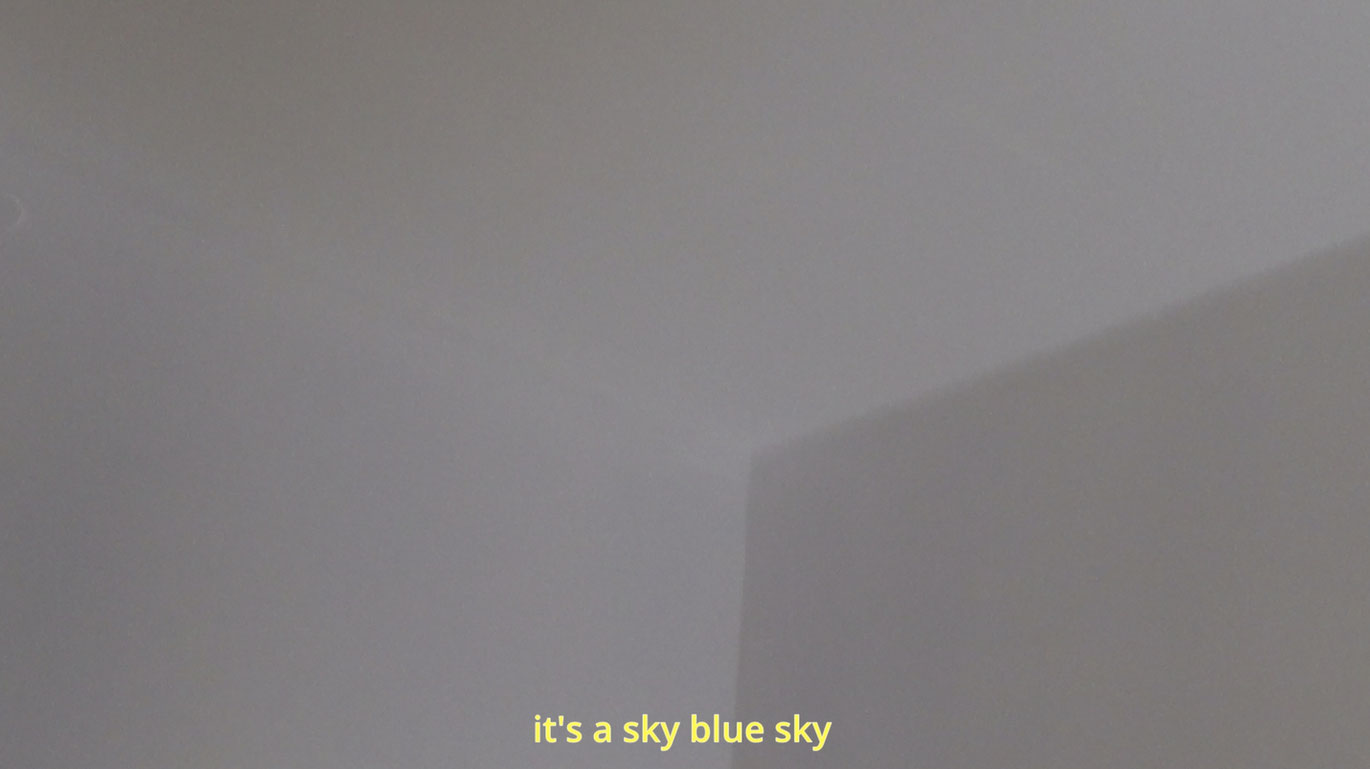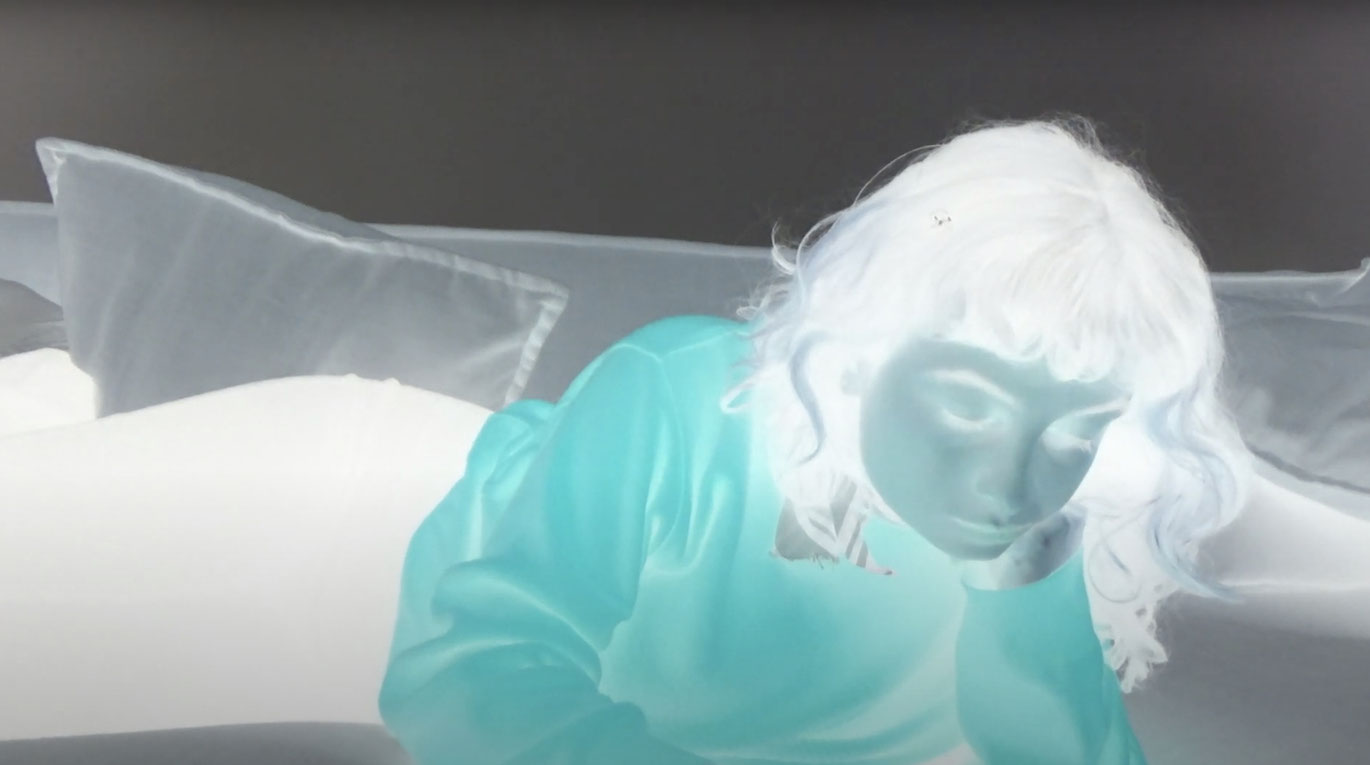Maybe I’ll be lost again tomorrow
This essay film deals with the idea of liquid modernity, as posited by Zygmunt Bauman. This term describes the transition from a solid to a more fluid form of social life, which affects our idea of home and deals with free floating as a lifestyle concept. The “liquid modern” person flows through their own life, constantly searching. (Production note)
Seeing, not seeing. “I have no idea how to start. Oh well, it’s a sky, blue sky.” That’s one of the first sentences in the film. The images flicker across the screen as if the good old television doesn’t have good reception. The television tower against a blue background, then blurred images again, then black and white images of the tram, of things, something melting. In the picture: young people. Fused into the camera – with the search on the Internet, with the search for themselves.
Hearing, not hearing. You could hear noises, broken cables, cars, trains, games. Then there were disturbances that get so loud that you feel like you’re standing on the dance floor, dancing to electronic music. I thought the lights would come on and I would see the faces of the dancers, and then the lights would go out again and I wouldn’t see the dancers anymore … You could hear young people talking.
Feeling, not feeling. Maybe we are already lost today if we think about being lost tomorrow? “Why is there something rather than nothing?” How can you find home once you have decided to set off and leave? Where is it? Nearby, around us, with the people who surround us, or in the nest we have flown out of?
Images and sounds can be deceptive. But Stephanie Bergwinkl’s essay film Maybe I’ll be lost again tomorrow is like a filter laid over feelings and thoughts, as an often reversed, moving image of everyday life – into a film negative. The film, with its abundance of images, forms and voices, cannot simply be deciphered or made manageable; rather, it invites us to surrender to its effect and to sense connections intuitively.“
I walk straight paths because it gives me the security of knowing that I can follow the path with my eyes,” says one protagonist – as defiance and contradiction in the indispensable chaos. (Lali Mgaloblishvili)
(Translation: John Wojtowicz)
Vielleicht bin ich morgen wieder verloren
2024
Austria
16 min



